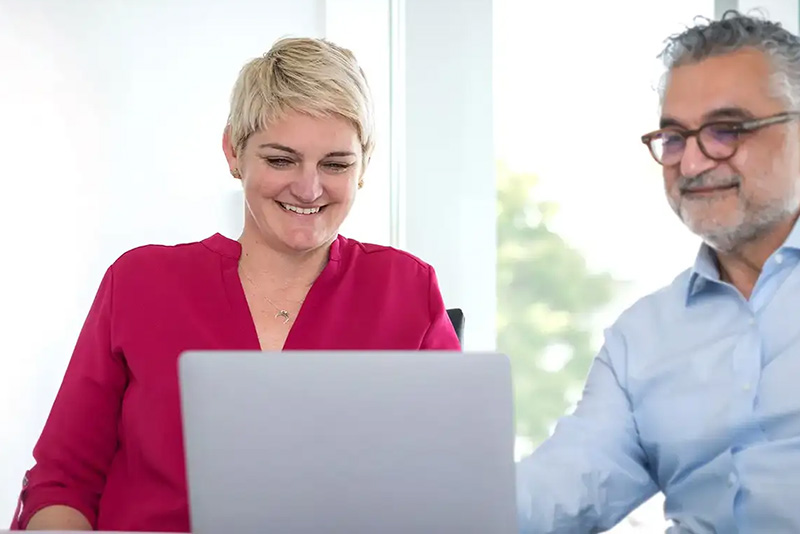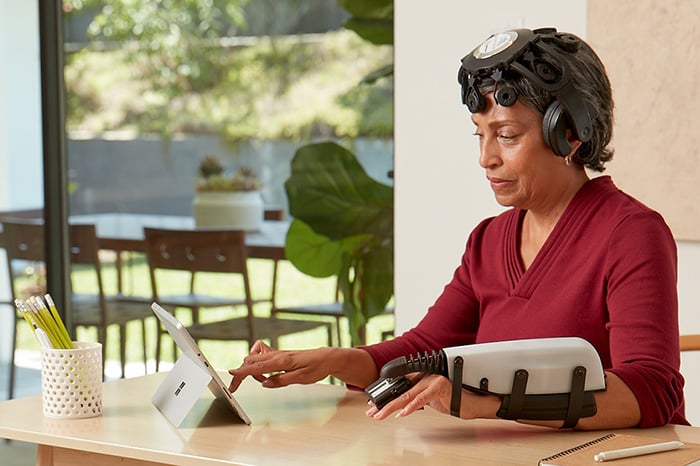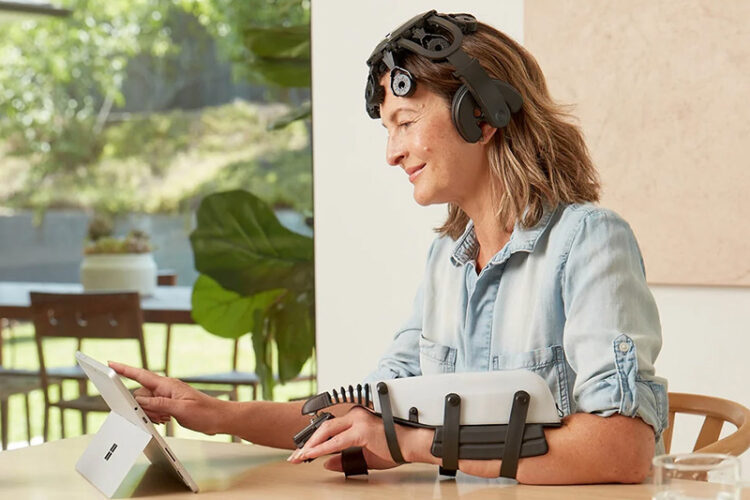Empowering Stroke Survivors: Interview with Kirsten Carroll, CEO at Kandu Health
MEDGADGET • MARCH 20TH • 2023 CONN HASTINGS
Kandu Health, a digital health company based in California, has developed a platform to assist stroke survivors with aftercare. Healthcare for stroke patients is primarily focused on acute care to limit the damage caused by the stroke. However, the company has identified that stroke survivors are frequently underserved after hospital discharge, and in many cases are left to cope with the psychological and physical fallout of the stroke with minimal support.
The e-health platform developed by Kandu Health connects stroke survivors with specialists who provide them, and their caregivers, with personalized guidance, education, and other resources to assist in enabling them to adapt to their new circumstances and make positive changes. Another aspect of the program is to connect stroke survivors with each other so that they can support one another with encouragement and advice.
See a video of some alumni from the program discussing their experiences:
Medgadget had the opportunity to speak with Kandu Health’s CEO Kirsten Carroll about the technology and concept.
Conn Hastings, Medgadget: Please give us an overview of the impact that a stroke can have for survivors.
Kirsten Carroll, Kandu Health: As many things as your brain does – those are the ways that a stroke can affect you. Moving, feeling, finding the right words to go with your thoughts, storing memories, seeing, paying attention, and processing emotions; all of these are things that can be impacted by a stroke. The experience for many stroke survivors is one in which they don’t actually know all the ways they have been affected for weeks or months, after they leave the hospital, and nobody can tell them for certain what will get better or worse during their recovery.
Stroke is often a traumatic experience, and one that profoundly challenges a person’s identity, and their feeling of agency over their own life and health. Many stroke survivors experience isolation, depression, and anxiety. These challenges are frequently compounded by the need to manage a variety of common underlying health conditions, including hypertension, diabetes, and chronic kidney disease, all while experiencing extreme post-stroke fatigue.
There are 20 million people in the U.S. living with the impacts of stroke, including eight million stroke survivors and 12 million care partners and family members. They are the experts on living life after stroke, and have an enormous amount of knowledge and community to share with each other.
“There are 20 million people in the U.S. living with the impacts of stroke, including eight million stroke survivors and 12 million care partners and family members. They are the experts on living life after stroke.”
Medgadget: How are such patients provided with aftercare at present? How is this suboptimal?
Kirsten Carroll: Historically, stroke care has focused on acute intervention to restore blood flow in the hours after stroke onset and minimize the damage to the brain. Follow-up care is largely focused on preventing another stroke. Though some stroke survivors receive stroke rehabilitation that can facilitate some level of recovery, the majority do not. There is almost no focus on education and support for survivors living with the lasting, often permanent impacts of stroke.
Stroke survivors have told us that while they may be brought to a hospital by helicopter with teams mobilized to urgently care for them, they leave quietly through the back door, with little attention or fanfare. While treatment at the acute level is swift and organized, there’s no singular entity dedicated to helping survivors navigate life after stroke. Research indicates that in the first three months after a stroke, the average survivor needs nearly 50 hours a week of informal care. In that same timeframe, 1 in 4 stroke survivors is readmitted to the hospital, most often due to infections caused or exacerbated by their stroke-induced impairments. By one-year post-stroke, that readmission number has grown to nearly 50%, with 20% of survivors being readmitted multiple times.
Stroke is a population health issue affecting nearly 10% of Medicare enrollees and a growing proportion of younger people. Post-acute clinical care in the first year after stroke costs over $20 billion annually in the United States, more than double the cost of acute stroke hospitalization. Stroke survivors need and deserve education, communities, therapies, and support that are designed for and with them to address the unique challenges they face in managing their health and their lives after stroke.
“Post-acute clinical care in the first year after stroke costs over $20 billion annually in the United States.”
Medgadget: What inspired this technology? How did the idea come about?
Kirsten Carroll: Kandu Health is a digital health company designed for and with people recovering from stroke. Survivors and their care partners continually advise on both the needs and the solutions being developed. The Kandu program is intended to address critical gaps in stroke care by providing personalized support to stroke survivors as they transition back home from the hospital. The large unmet need in stroke recovery and post-acute care inspired our platform and continues to inspire our work to deliver personalized support to stroke survivors.
Kandu was founded inside Imperative Care, a medical technology company focused on developing connected innovations to elevate care for people affected by stroke and vascular diseases.
Medgadget: Where is the system currently available? How has it been received so far?
Kirsten Carroll: The Kandu Health program is nearing completion of its pilot with our first hospital partners and will continue providing service in the greater Los Angeles and South New Jersey areas.
Although it is early data with small numbers, Kandu’s enrollment rates, engagement, and outcomes have exceeded expectations to date. Kandu graduates have uniformly endorsed the program, noting the significant impact it has had on their health, agency, and quality of life.
Kandu’s Hospital partners recognize that there are significant gaps in the care provided to stroke survivors, especially after these patients return home to continue their recovery. Their partnership with Kandu is a signal of their commitment to clinical excellence, and accountability to the populations they are serving beyond hospital discharge.
There is tremendous excitement around the clinical evidence we are starting to collect, and we look forward to presenting evidence of Kandu’s impact at multiple scientific conferences in the coming year. Most importantly, we are seeing survivors’ excitement about participation in the Kandu program and witnessing positive changes in their quality of life as they regain their agency and increase their independence. We look forward to announcing commercial partnerships in expanded geographies in the near future.
“Most importantly, we are seeing survivors’ excitement about participation in the Kandu program and witnessing positive changes in their quality of life as they regain their agency and increase their independence.”
Medgadget: Do you have any plans to expand this type of service for other health issues? Where do you see this type of connected health solution going in the future?
Kirsten Carroll: At this time, we are focused on building awareness, scaling the platform, and increasing adoption of the Kandu platform for stroke survivors. In the future, we hope that our coordinated, community-centered approach to post-acute care can be applied to other conditions and disease states.
Our Contacts
Investor Contact
Stefan Heuser, Kandu Health
[email protected]
Media Contact
Jana Chow, Director of Communications
[email protected]



